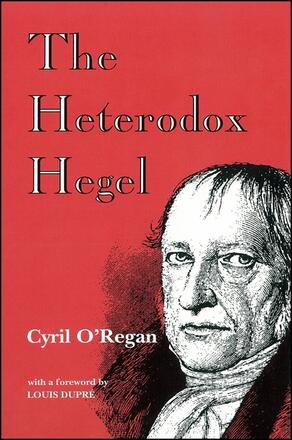
The Heterodox Hegel
Alternative formats available from:
Cyril O'Regan is Assistant Professor of Religious Studies at Yale University.
Reviews
"It is a work of great originality and enormous comprehension that imposes itself upon Hegel scholarship by its sheer intellectual power, its creative expression, and its staggering erudition. " — Louis Dupré, Yale University
"This work is original and brilliant as the first full-length study of the mystical background to Hegel. Cyril O'Regan's work is a ground-breaking study that will enable readers of Hegel to understand him within the context of the mystical tradition that he claimed as his own. For he made no secret of his filiation with the esoteric strands of Christian mysticism and this was clearly the way he was understood by F. C. Bauer, as well as Feuerbach, Engels, Marx and many of his immediate successors. It has always struck me as a major lacuna in Hegel scholarship that such a study had not appeared. Now it has been filled in considerable measure. " — David Walsh, The Catholic University of America
"I find this book utterly fascinating to read. In many respects it read like a detective novel. Hegel continues to grow in importance, and the metaphysical/theological aspect of his thought, which he places at the center, remains, indeed, central. There are a number of good books in the area in English, but nothing quite as ambitious and comprehensive as this study. It is a milestone in the study of Hegel's religious thought which no future work in the area will be able to ignore. " — Merold Westphal, Fordham University
"This is an outstanding study of Hegel's philosophy of religion, exceptionally illuminating with respect to Hegel's account of the Trinity and the sources of Hegel's views. The author has an exceptional mastery of the entire tradition of speculative theology, a synoptic mastery of Hegel's texts and the major commentaries in English, German and French. " — William Desmond, Loyola College